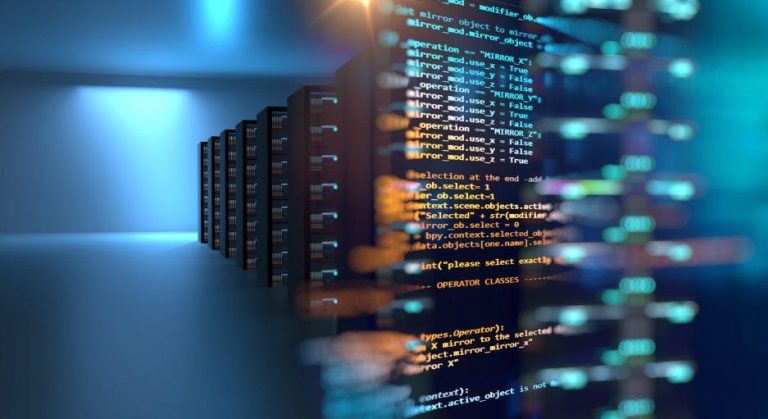Table of Contents
[ad_1]
There is a whole lot of worry of probable Russian cyberattacks stemming from Russia’s tried takeover of Ukraine. Potentially the most important stress —and really quite possibly the most possible to materialize — is that these cyberattacks will probable be finely tuned as retaliation for US money moves versus the Russian economy.
The cyberattacks would be intended not to steal revenue or knowledge for every se, but to hurt the US financial system by strategically hitting major gamers in important verticals. In other text, the Russian government may say, “You damage our financial state and our folks? We’ll do the exact same to you.”
Therefore considerably, there’s no proof of any significant-scale assault, but 1 could be released at any time.
Brad Smith, a running director for consulting company Edgile, argues that enterprise IT and stability executives require to adjust their pondering during the ongoing war.
“The timeframes and the criticality of the investments that businesses want make all around the defense of their assault surface area will need to be altered and looked at by way of a distinctive lens and a distinct viewpoint,” Smith mentioned.
Waiting to make investments in more powerful protection until eventually assaults are now seen is too late. “The menace now is an existential 1,” he reported. “The nature of what you are making an attempt to defend you against has basically adjusted, so your behavior has to alter as a final result.”
It’s also vital to recall, Smith reported, that the attackers’ objectives are different than regular. “The danger is coming from companies that are not fascinated in taking your data or leaving your systems alive later on,” Smith reported. “They are simply trying to do as substantially injury as possible in get to disrupt businesses and thus disrupt the American economy.”
This does raise the issue of why a lot more noticeable assaults have however to materialize. Have the attacks now transpired, planting digital timebombs in picked targets to either go off at a predetermined working day/time or at the prompt a cause command is issued? That would have the remarkable end result of almost everything detonating at at the time.
Different US government agencies have warned of imminent assaults, but the incredibly few particulars they have supplied typically amount of money to, “Do what every organization CISO knows they need to have accomplished many years in the past.”
A person of the much better warnings came March 24 from the U.S. Cybersecurity & Infrastructure Safety Agency (CISA). Just after listing a variety of blindingly apparent ideas — “Set and implement protected password insurance policies for accounts.” Seriously? Who would have at any time imagined of performing that? — CISA encourages significantly much more implementations of VLANs (specifically for networked printers and related devices) as very well as one-way communication diodes.
CISA also provides a standard considered that wanted to be considerably far more distinct: “Enforce multifactor authentication (MFA) by requiring buyers to give two or additional pieces of info (these types of as username and password in addition a token, e.g., a physical sensible card or token generator) to authenticate to a process.”
First, in 2022, CISA should really be actively discouraging passwords entirely. Enterprise passwords should really have died out several years ago. Next, some MFA ways are far extra safe than others. (I won’t rant once again about the worst MFA technique of sending unencrypted text by using SMS that is nothing a lot more than horrible cybersecurity masquerading as first rate cybersecurity.) How about encouraging mobile application authenticator techniques, which are low expense and conveniently available?
What CISA did not say, and what Smith strongly implied, is that CISOs and CIOs have to have to consider a war footing and improve their imagining about conclude-person friction.
Nowadays, IT, security, and line-of-organization executives are terrified of creating their people jump by way too quite a few authentication hoops, albeit for very diverse causes. The line-of-small business executives are nervous about anything at all that could gradual down efficiency, although CISOs are much more concerned about stop-consumers having frustrated and undertaking conclusion-runs about the protections.
But now it’s time to up authentication strictness and enable end-person friction to rise. Following all, the attack intention is not to steal customer knowledge as considerably as it is to shut down operations. Assume about hospitals and energy crops and other superior-price targets. All those attacks could simply get rid of men and women. From that sort of risk, does a handful of minutes of inconvenience definitely make any difference?
That all mentioned, there is an operational dilemma in this article. What if the attacks really don’t arrive up for months? Or even worse, what if they occur and we under no circumstances know when they are concluded? Are enterprises expected to maintain a war footing without end.
That is not a question quickly answered. On the a person hand, cyberthieves of non-war-sorts are usually likely to be in this article and their assaults are likely to continually get far more advanced. Wouldn’t that advise that war-footing really should be permanent?
Also, non-friction does not have to mean weak-authentication or weak cybersecurity. Consider behavioral analytics and constant authentication. It is not new security as a lot as a new way of contemplating about protection. And all through a war, new approaches of pondering could be what fends off productive attacks.
Copyright © 2022 IDG Communications, Inc.
[ad_2]
Supply url







